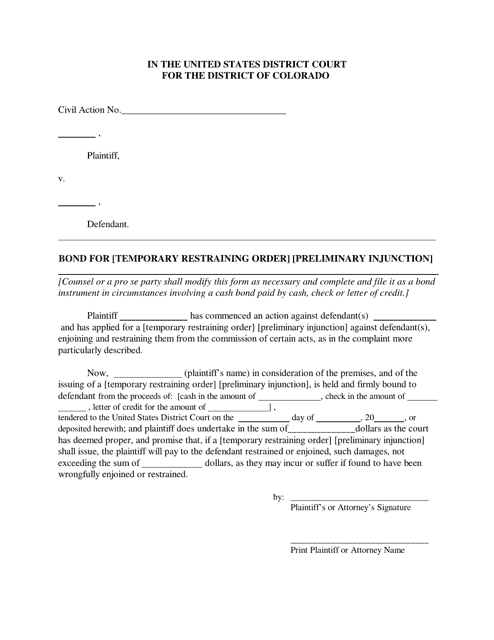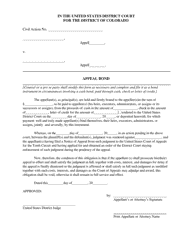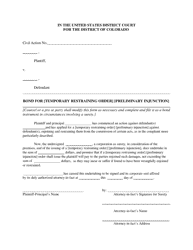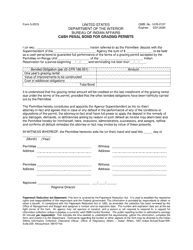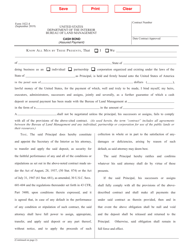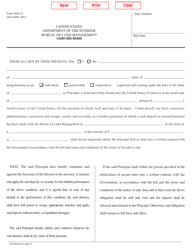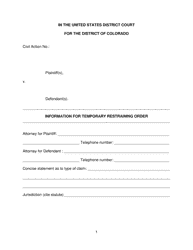Temporary Restraining Order Cash Bond Form - Colorado
Temporary Restraining Order Cash Bond Form is a legal document that was released by the United States District Court for the District of Colorado - a government authority operating within Colorado.
FAQ
Q: What is a Temporary Restraining Order?
A: A Temporary Restraining Order is a court order that is designed to provide immediate protection to a person who believes they are at risk of harm or harassment.
Q: What is a cash bond?
A: A cash bond is a type of financial guarantee that a person pays to the court in order to secure their release from custody.
Q: Why would someone need to post a cash bond for a Temporary Restraining Order?
A: If a court requires a cash bond for a Temporary Restraining Order, it is usually to ensure that the person seeking the order is serious about their request and will comply with the court's orders.
Q: What is the purpose of the Temporary Restraining Order Cash Bond Form in Colorado?
A: The Temporary Restraining Order Cash Bond Form in Colorado is a document that allows an individual to post a cash bond as required by the court when seeking a Temporary Restraining Order.
Q: How do I fill out the Temporary Restraining Order Cash Bond Form?
A: To fill out the form, you will need to provide your personal information, details about the case, and the amount of the cash bond you are posting.
Q: Is the cash bond refundable?
A: In some cases, if the court determines that the cash bond is no longer necessary, it may be refunded to the person who posted it.
Q: Can I use a different type of bond instead of a cash bond?
A: It depends on the court's requirements. Some courts may allow alternative forms of financial guarantees, such as property bonds or surety bonds.
Q: What happens if I fail to comply with the court's orders after posting a cash bond?
A: If you fail to comply with the court's orders, the cash bond may be forfeited and you may face additional legal consequences.
Form Details:
- The latest edition currently provided by the United States District Court for the District of Colorado;
- Ready to use and print;
- Easy to customize;
- Compatible with most PDF-viewing applications;
- Fill out the form in our online filing application.
Download a printable version of the form by clicking the link below or browse more documents and templates provided by the United States District Court for the District of Colorado.
